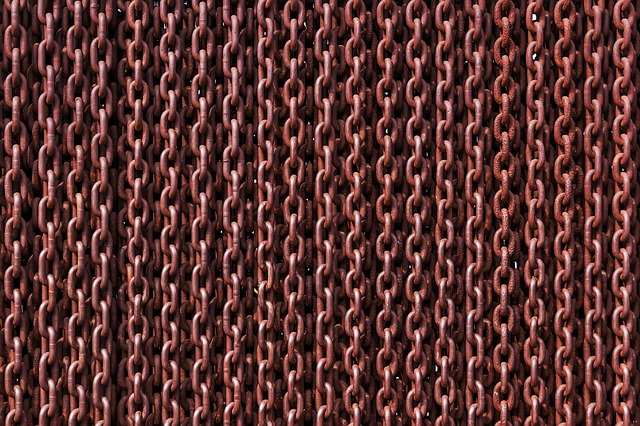
This week we celebrate the holiday of Pesach. We’ve mentioned a number of times that our holidays are not mere commemorations of events which transpired long ago. Rather, they serve as the tools which enable us to access that very same spiritual potential which was maximized then and is available, once again, now.
It’s interesting to note that even amongst those whose level of commitment to other mitzvos and holidays might not be so strong, the commitment to some degree of a Pesach celebration has remained very firm.
Pesach, the Exodus from Egypt, marked our beginning as a nation. Not just a nation like the myriad others, but a nation whose course and destiny would be guided by Hashem to bring this world to its ultimate purpose. That connection to Hashem which Avrohom Avinu {Abraham the Patriarch} began on a personal, individual level, which was continued by Yitzchok and then by Yaakov and his twelve sons, the tribes of Israel, became the fortune and destiny of the nation at large at the time of the exodus. As Hashem revealed Himself to us at Sinai and revealed to us His holy will in the form of the Torah, it is the majestic responsibility of Bnei Yisroel {the children of Israel} to reveal His existence and involvement in this world to the rest of the nations.
As I was reviewing the Haggadah with some boys from my shiur {class}we came to the following passage. The Haggadah states that the Torah, in commanding us to relate the exodus to our children, speaks of four sons: echod chacham {one, wise}; echod rasha {one, evil}; echod tom {one, simple}; v’echod she’aino yodaiah lish’ol {and one, that doesn’t know how to ask}.
One of the boys asked why it was necessary to write the word ‘one’ before each of these types of sons. We offered a possible explanation that the Haggadah is teaching us that every person is an individual with his gifts and abilities (sometimes still latent) and must be respected as such. Additionally, as the Haggadah then delineates, each must be treated and answered in an appropriate manner in order for the answers to hit home. There must be different approaches for different people–there is no ‘one’ method or answer which will be universally effective.
The rasha asks: What is this service that you do? He is clearly excluding himself from the whole business. Why do you bother with all of this outdated, silly ritual? The answer he is given is cutting and to the point. This is why Hashem took me out of Mitzrayim {Egypt}. Me. Had you been there with such an attitude, you would not have been redeemed.
This is why Hashem took us out of Mitzrayim. We, through the observance of the Torah and its commandments, bring the presence of Hashem into this world. Taking that presence which is hidden and allowing it to be revealed. A process, a chain stretching from the time of the exodus throughout the generations, throughout thousands of years until the time of the moshiach {messiah}. Ultimately reaching to the point in time when the whole world will recognize and accept Hashem as the Master of the universe.
Imagine the dedication, love and gratitude that those who left Mitzrayim felt toward Hashem. Imagine their resolve to follow each and every iota of ritual that the Creator commanded, knowing that it’s an integral piece of the puzzle, building the world toward that state. “In each and every generation a person is obligated to view himself as if he himself left Mitzrayim.[Haggadah]” Only then does a person feel a true obligation to continue the chain that was started then.
Imagine a chain that is painstakingly being formed, link by link, stretching across a great canyon. The other side has almost been reached. The work of thousands is on the verge of completion. Then, with only two or three links remaining, the people entrusted with those links get careless! They just don’t bother to make sure they are attached. As others look on in horror, they see that chain slip from their grip, falling back, back across the great divide, until it’s hanging limply from its starting point. All of the effort and work, sweat and tears, erased in a moment of indifference…
Every generation, every person, another link in the chain. We are the final links of the chain that stretches from the exodus to the moshiach, from the beginning of our nationhood to the end of time. Incredible pain and determination have been endured to produce this chain. I doubt there’s a single Jew alive today who doesn’t have ancestors who gave up their life for their Judaism, who sacrificed all that they had to guarantee that they would continue that chain. (Every convert is considered a direct descendant of Avrohom Avinu himself, the one who was willing to sacrifice that which was most dear to him.) How can we be careless and indifferent? How can we, the final, critical links of this chain, break that which was built from the blood of our great grandparents?
Perhaps that is one of the feelings which come around and is ‘felt in the air’ every year at this time. It is absorbed even by those who might not be as observant other times of the year. The feeling and realization that we are part of something much bigger than ourselves and that we have responsibilities to others who came long before us.
As we, during this z’man geulasainu {time of our redemption} attempt to feel as if we ourselves left Mitzrayim, let that be followed by our running to greet the moshiach, heralding the final and ultimate redemption, proudly presenting ourselves as those final, strong links in the chain of our nation.
Wishing you a kosher and joyous Pesach,
Yisroel Ciner
Copyright © 1999 by Rabbi Yisroel Ciner and Project Genesis, Inc.
The author teaches at Neveh Tzion in Telzstone (near Yerushalayim).


